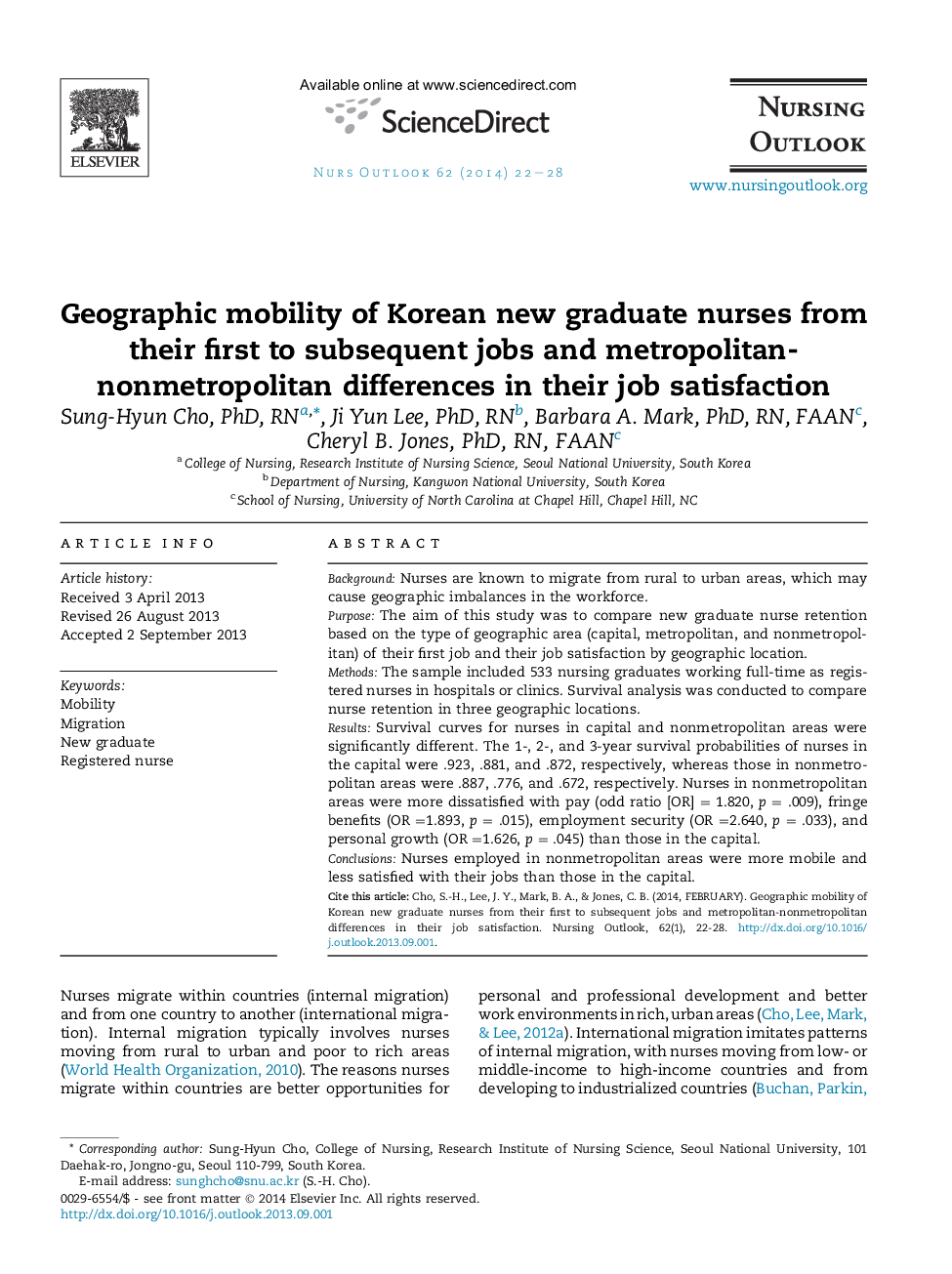| Article ID | Journal | Published Year | Pages | File Type |
|---|---|---|---|---|
| 2676175 | Nursing Outlook | 2014 | 7 Pages |
BackgroundNurses are known to migrate from rural to urban areas, which may cause geographic imbalances in the workforce.PurposeThe aim of this study was to compare new graduate nurse retention based on the type of geographic area (capital, metropolitan, and nonmetropolitan) of their first job and their job satisfaction by geographic location.MethodsThe sample included 533 nursing graduates working full-time as registered nurses in hospitals or clinics. Survival analysis was conducted to compare nurse retention in three geographic locations.ResultsSurvival curves for nurses in capital and nonmetropolitan areas were significantly different. The 1-, 2-, and 3-year survival probabilities of nurses in the capital were .923, .881, and .872, respectively, whereas those in nonmetropolitan areas were .887, .776, and .672, respectively. Nurses in nonmetropolitan areas were more dissatisfied with pay (odd ratio [OR] = 1.820, p = .009), fringe benefits (OR =1.893, p = .015), employment security (OR =2.640, p = .033), and personal growth (OR =1.626, p = .045) than those in the capital.ConclusionsNurses employed in nonmetropolitan areas were more mobile and less satisfied with their jobs than those in the capital.
